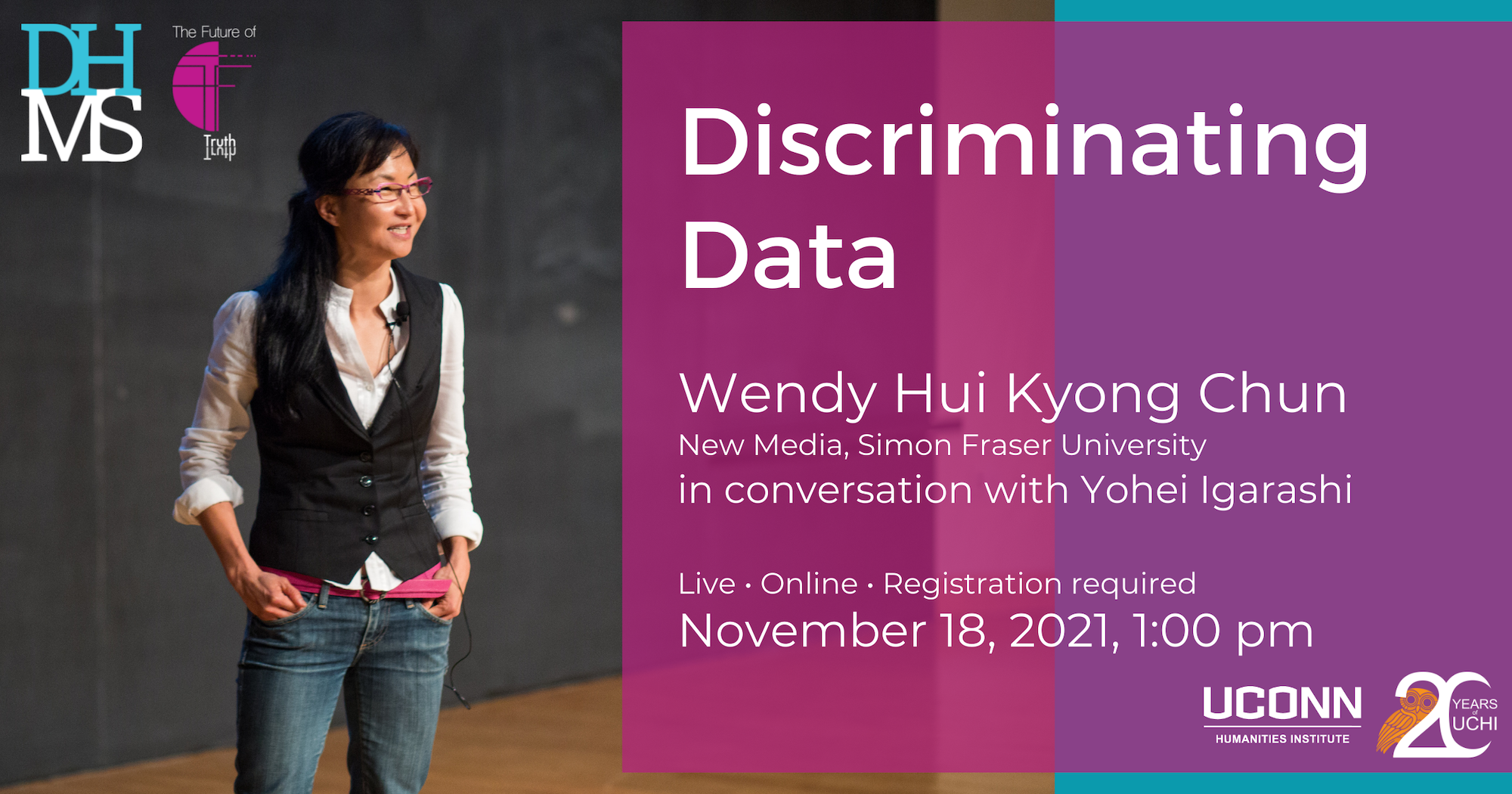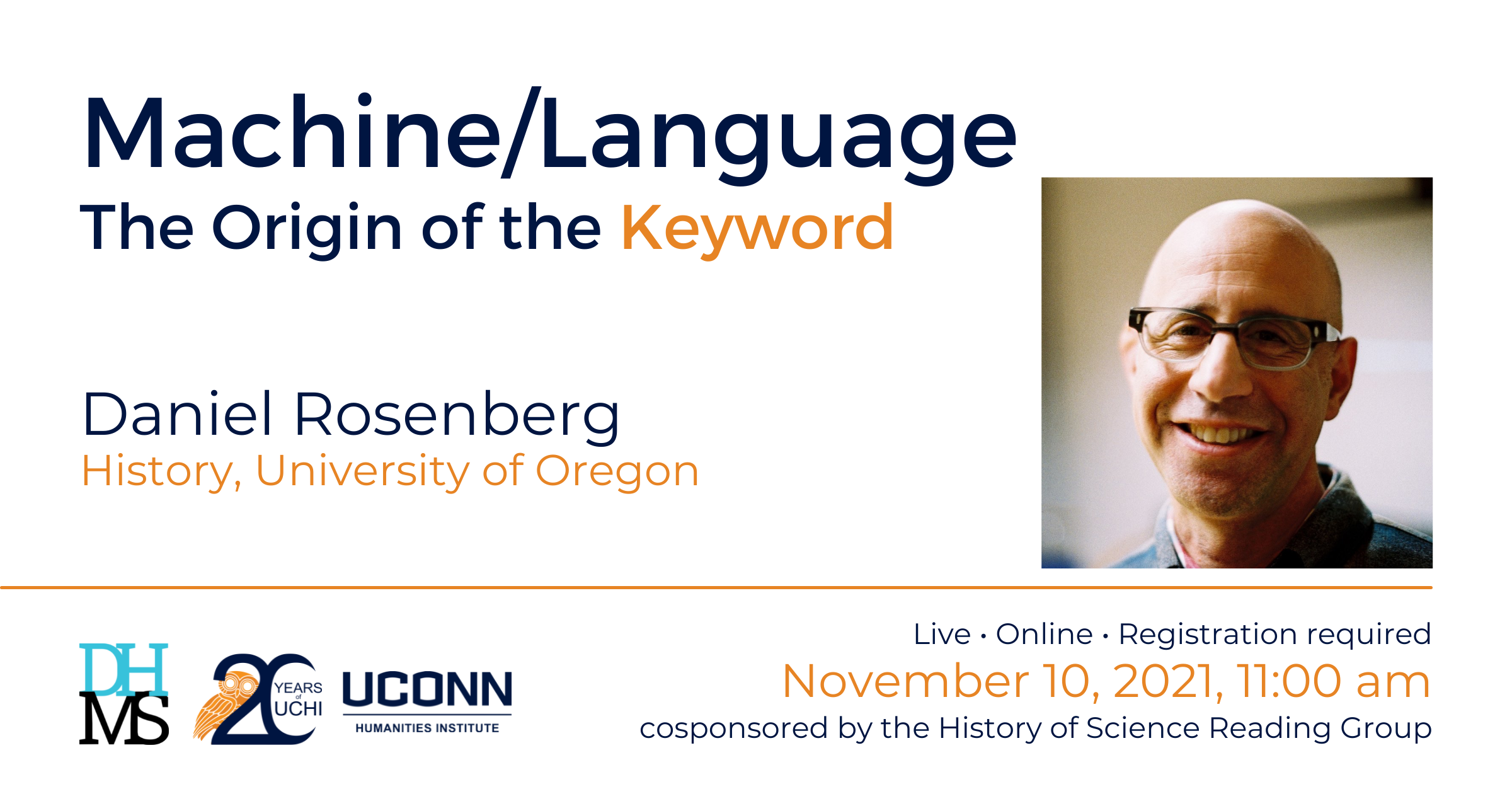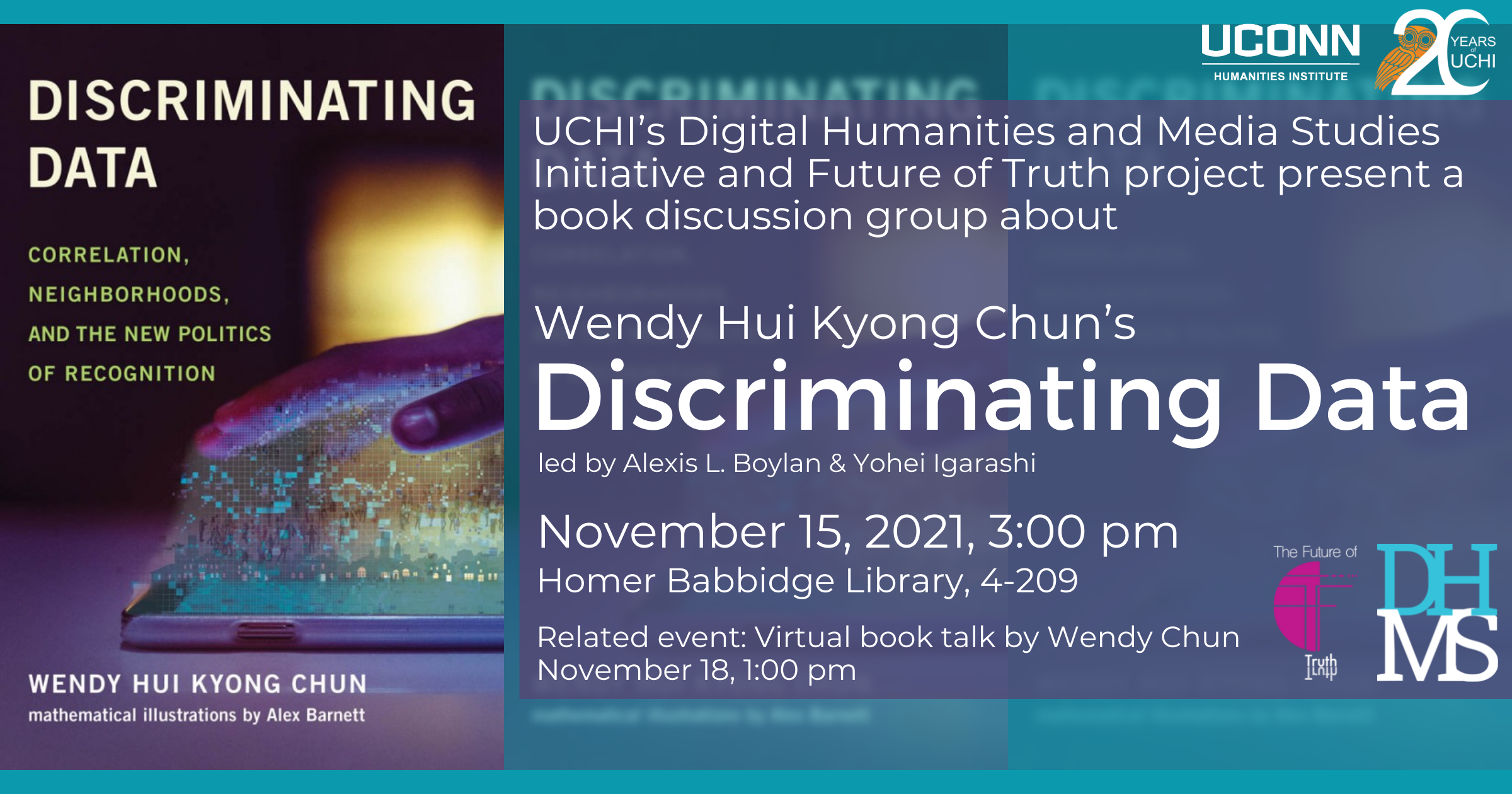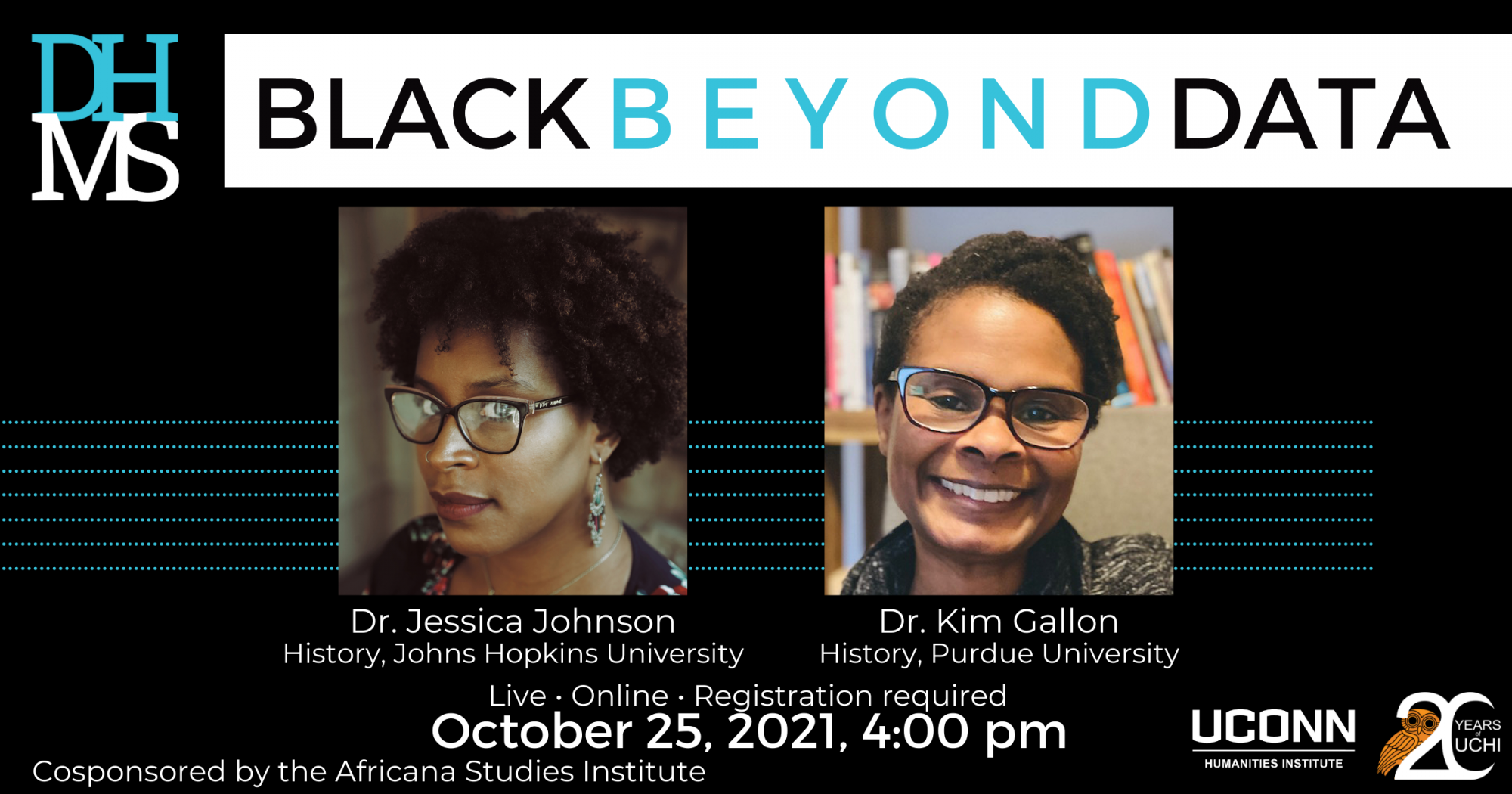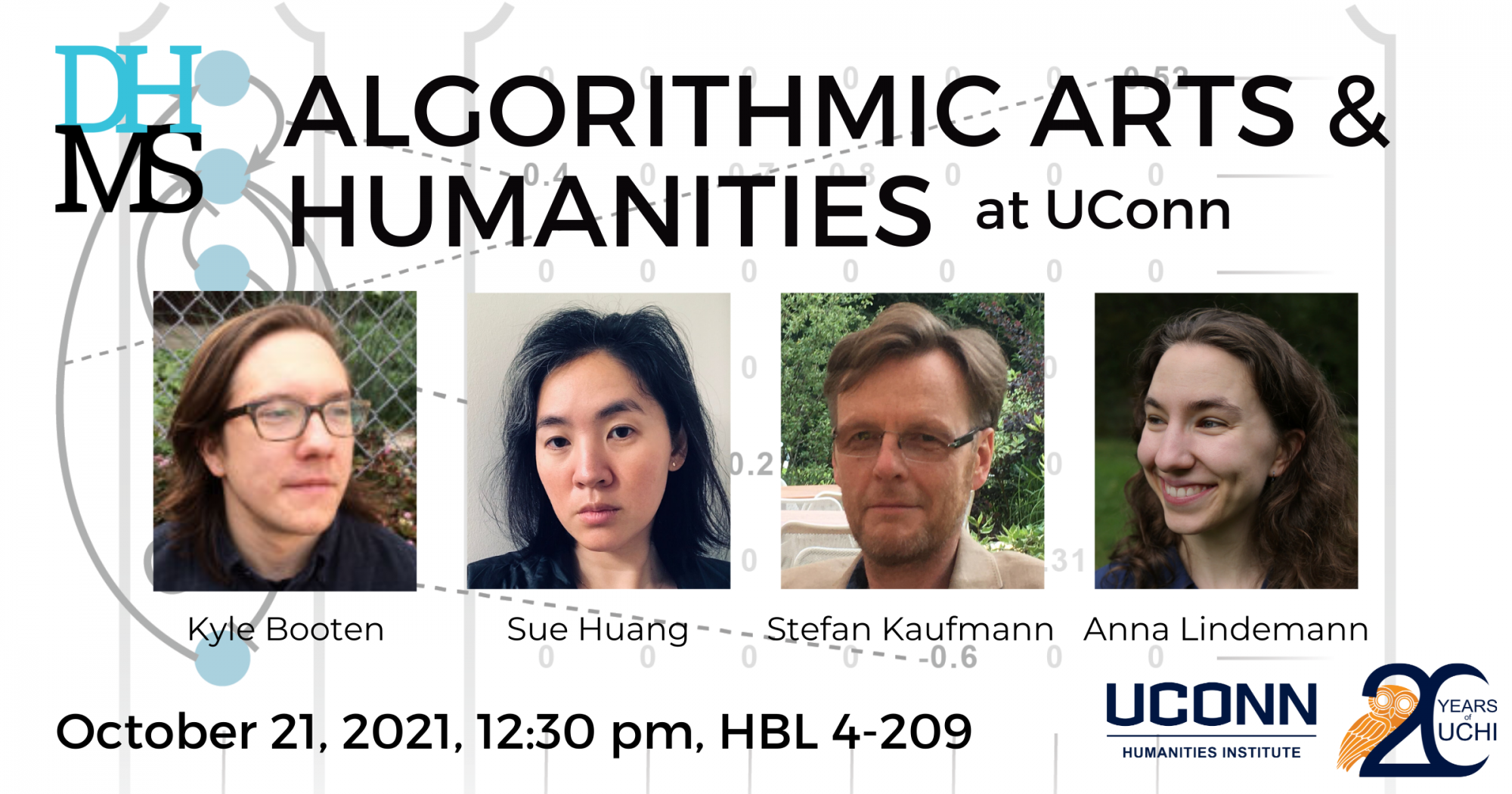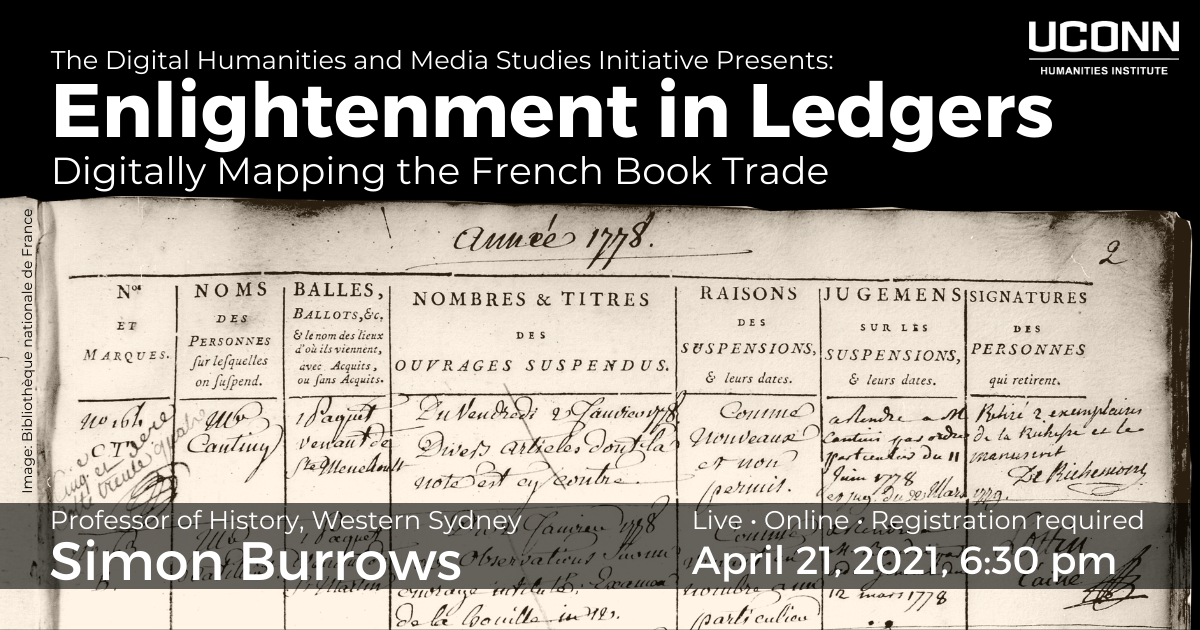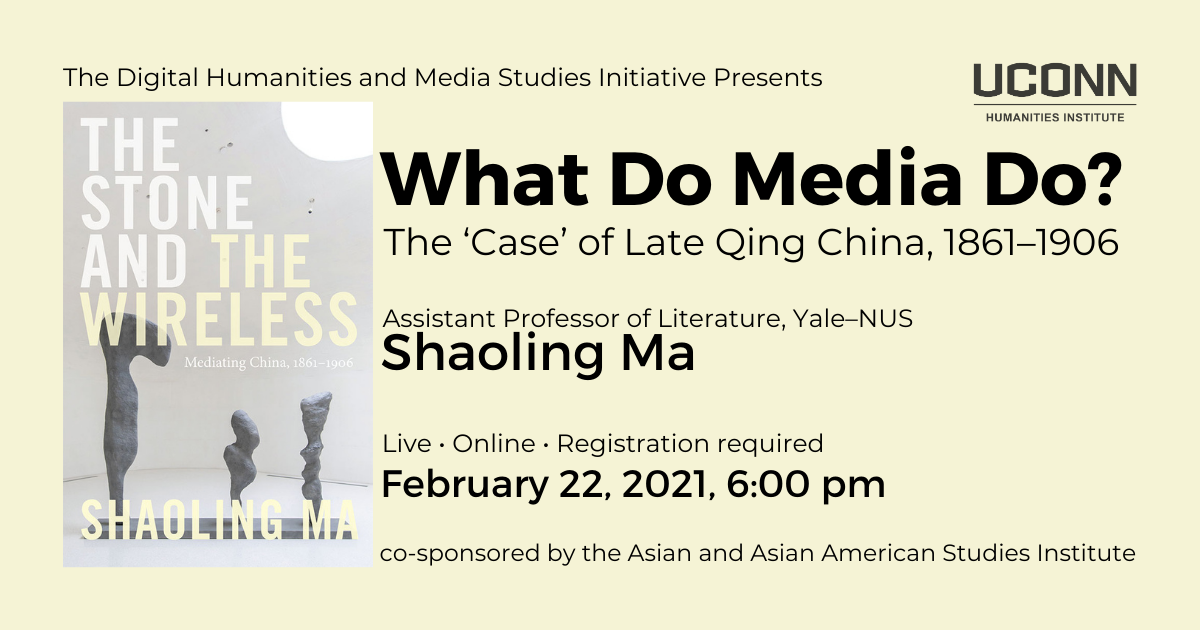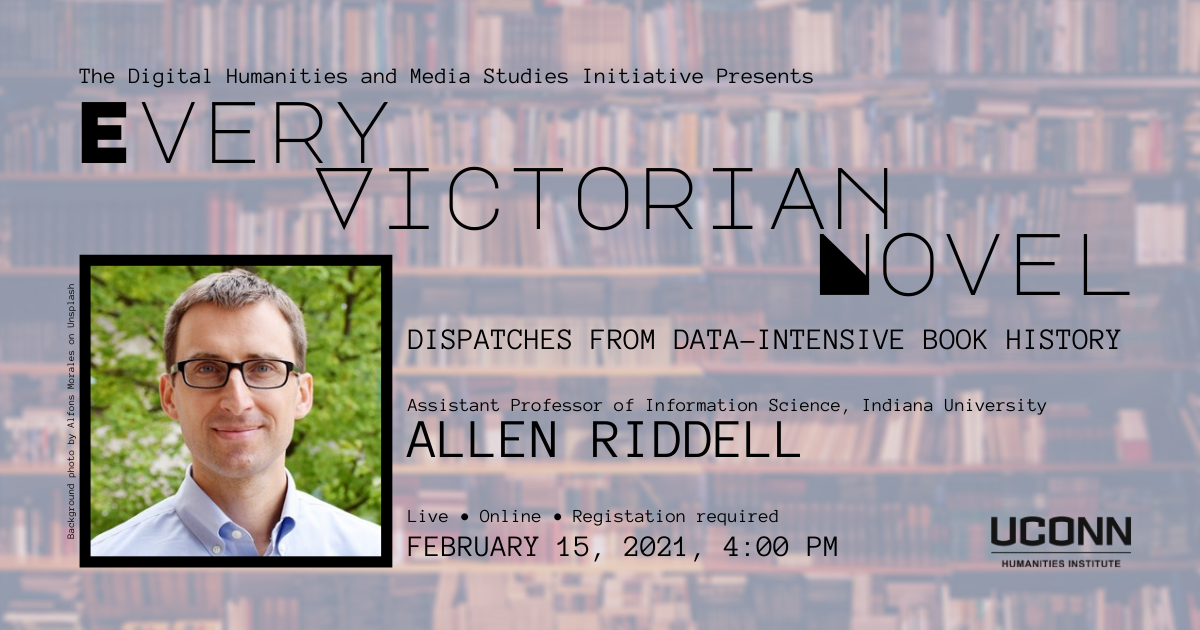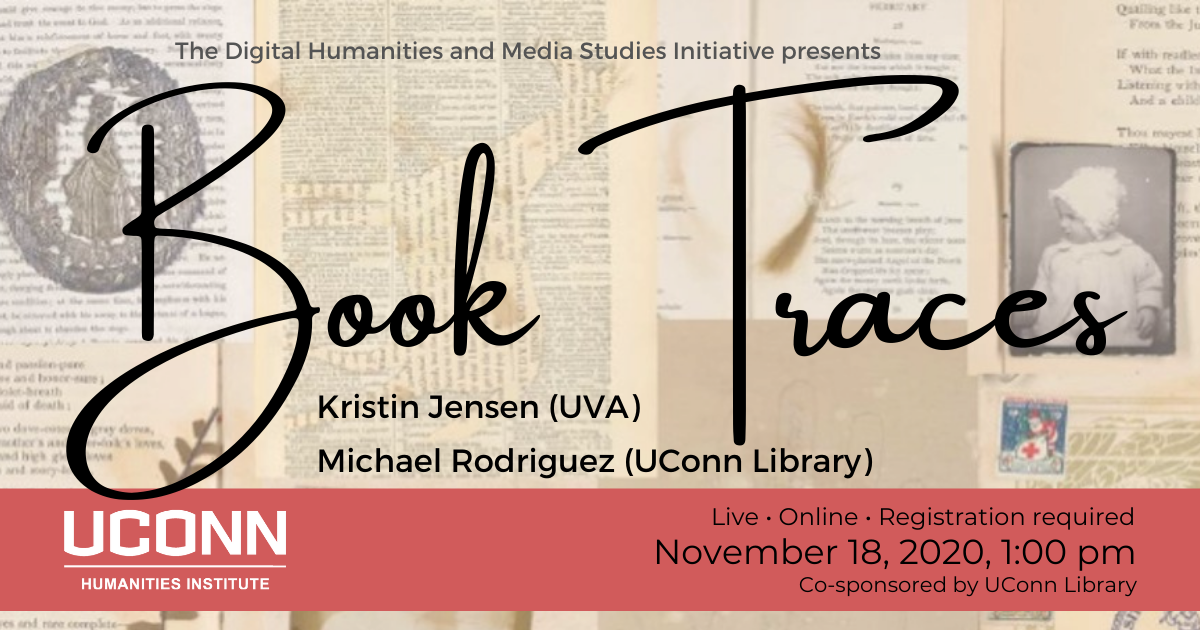If you require accommodation to attend this event, please contact us at uchi@uconn.edu or by phone (860) 486-9057. We can request ASL interpreting, computer-assisted real time transcription, and other accommodations offered by the Center for Students with Disabilities.
The Digital Humanities and Media Studies Initiative presents:
Discriminating Data
Wendy Hui Kyong Chun (Simon Fraser University)
in conversation with Yohei Igarashi
November 18, 2021, 1:00–2:30pm
Add to Google calendar Add to Office 365 calendar Add to other calendar
Live. Online (with automated captioning). Registration required.
This is an honors event (Multiculturalism & Global Citizenship, Academic & Interdisciplinary Engagement)
In this conversation, Wendy Hui Kyong Chun (SFU’s Canada 150 Research Chair in New Media) will discuss themes from her new book Discriminating Data (published November 2, 2021, MIT Press) about how big data and predictive machine learning currently encode discrimination and create agitated clusters of comforting rage. Chun will explore how polarization is a goal—not an error—within current practices of predictive data analysis and machine learning for these methods encode segregation, eugenics, and identity politics through their default assumptions and conditions. Correlation, which grounds big data’s predictive potential, stems from twentieth-century eugenic attempts to “breed” a better future. Recommender systems foster angry clusters of sameness through homophily. Users are “trained” to become authentically predictable via a politics and technology of recognition. The predictive programs thus seek to disrupt the future by making disruption impossible.
Wendy Hui Kyong Chun is Simon Fraser University’s Canada 150 Research Chair in New Media and leads the Digital Democracies Institute. She is the author of several works including Control and Freedom: Power and Paranoia in the Age of Fiber Optics (MIT, 2006), Programmed Visions: Software and Memory (MIT, 2011), Updating to Remain the Same: Habitual New Media (MIT, 2016), Discriminating Data (MIT 2021), and the co-author of Pattern Discrimination (University of Minnesota & Meson Press, 2019). She has been Professor and Chair of the Department of Modern Culture and Media at Brown University, where she worked for almost two decades and where she’s currently a Visiting Professor. She has also been a Visiting Scholar at the Annenberg School at the University of Pennsylvania, Member of the Institute for Advanced Study (Princeton), and she has held fellowships from: the Guggenheim, ACLS, American Academy of Berlin, Radcliffe Institute for Advanced Study at Harvard.
In conjunction with talk we will be hosting a book discussion group about Discriminating Data on November 15, 2021.
